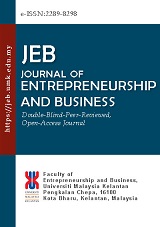The Use of Meta-Analysis to Examine Talent Shortage Dynamics in Islamic Banking Institutions
DOI:
https://doi.org/10.17687/263yka46Keywords:
Talent shortage, Islamic Banking, Malaysia, Meta-analysisAbstract
The Islamic banking industry's rapid global growth, driven by increasing demand for Sharia-compliant financial solutions, has exposed a significant challenge: talent shortage. This study addresses a research gap by systematically reviewing and synthesising 42 studies published between 2000 and 2023 that examine the multidimensional causes of talent shortages in Islamic banking. Data were collected from Scopus, Web of Science, Google Scholar, and industry reports, applying thematic coding to identify key patterns. Results reveal that lack of awareness and education (76% of reviewed studies), cultural and religious barriers (54%), compensation discrepancies (48%), regulatory complexities (43%), and regional disparities in talent availability (39%) are the most cited causes. The findings are framed using Human Capital Theory and Institutional Theory to provide both practical and theoretical insights. The study proposes strategic recruitment, retention, skill development, and industry competitiveness enhancement initiatives to address these shortages. Practical implications for policymakers, HR managers, and education providers are discussed to ensure long-term sectoral sustainability.








